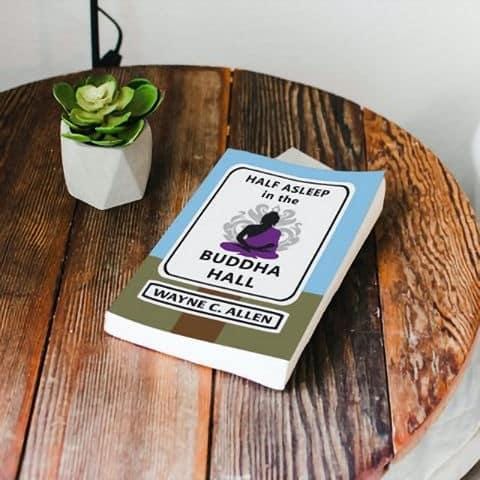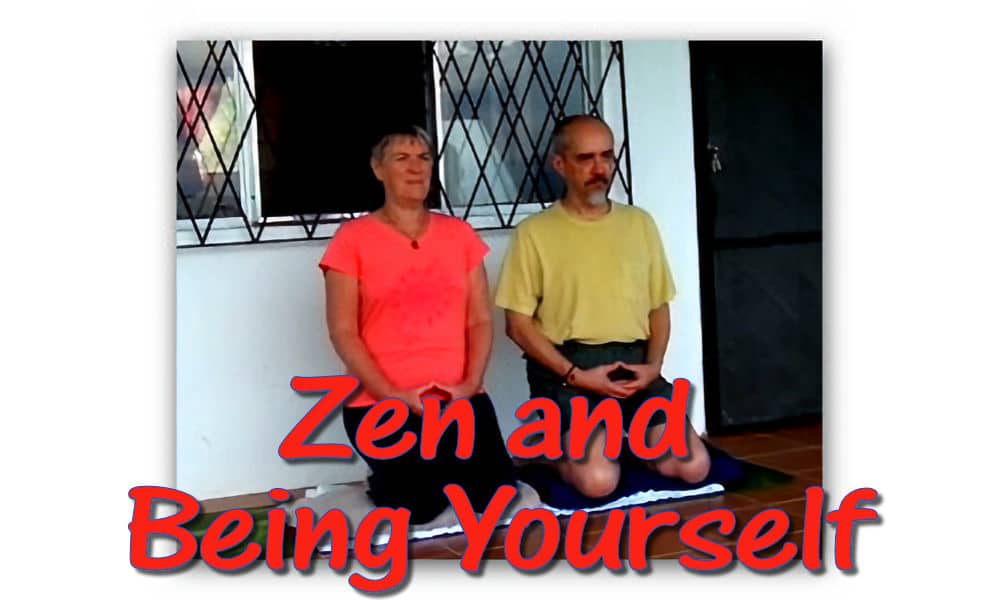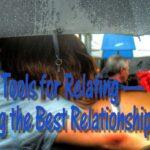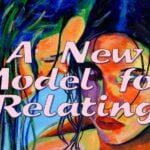Zen and being yourself — reality is that which is right in front of us. Descriptions of reality are convenient fictions.

Looking for more on this topic?
Check out my book,
Half Asleep in the Buddha Hall.
My “Eastern” book takes you by the hand and helps you to find peace of mind.
Half Asleep in the Buddha Hall is a Zen-based guide to living life fully and deeply.
(Here’s a direct Amazon link)
Purchase digital versions (Apple, Nook, Kobo, etc.) from this page
As long as you are trying to understand reality or you yourself in phenomenal terms it is not possible. When you understand that there is something more than spiritual or material, more than right or wrong, that is reality. That is actually each one of us. To know this is to have renunciation, to be free from ideas of right or wrong, life or death, spiritual or material…That is actually zazen—to go beyond various ideas and just be yourself. p120-121
Not Always So, Shunryu Suzuki
Most of the people I come across are trying (desperately…) to have an experience other than the one they are having.
Which, I suppose, is sort of an authentic thing to want, given that the thing they want to change is something they consider crappy. (On the other hand, the things that are happening to us are happening for a reason — so that we might, just possibly, actually learn something…)
The people wanting a ‘better’ reality also have something else in common.
They think that what they are facing is external, and they spend their time trying to get externals to “change and behave.” Another popular pass-time is to waste one’s life trying to figure out what the “right” thing to do is, or even more fun — “who is right?”
As our quote above says, the path out of this illusion is achieved by: “just being yourself.”

Example: I was talking with a friend the other day, and I made a distinction for her. She mentioned that none of her relationships had worked out. I replied that the word relationship is a convenient fiction — that no one, during my 32 years of doing counselling, ever brought a relationship into my office.
What did show up was one or more people, who then tried to tell me about their relationship, sort of as if it were, say, their car.
Now, you may be thinking, “Of course I have a relationship! I have the marriage license to prove it!” Or, “I gave birth to the little bugger, so of course I have a relationship to him! He is my son!”
Well, I’m here to tell you that this is a convenient fiction. It is a name you have given to something non-existent.
And it’s not just semantics. It boils down to this: any external problem you think you have is simply a figment of your creative imagination. It cannot be any other way.
Objects have independent reality, sure. The computer monitor or device screen you are reading this on actually exists. It has a name – “screen.” How you feel about this screen, however, is entirely about you, and has nothing to do with the object “screen.”
Same with your “relationships.”
“Relationship” is a convenient fiction for defining the parameters of something. It’s handy to say, “I am in primary relationship with Darbella.”

When I say that, however, and leave it there, you have no idea what I mean by “primary relationship.” When you read the words and started thinking about a “primary relationship,” what you came up with was your definition of that term, not mine.
“Well, doesn’t everyone mean the same thing by “primary relationship?” Of course not! It’s silly to assume that we all think, and reason, and judge alike.
So, anyway, back to my friend. She and her current partner spend endless hours talking about how they want their relationship to be. Most of it is a judgment that the other person is not doing it right.
Notice the word “it.” There also is no “it.” If there is, show “it” to me. You can’t.
- “It” is erroneously used as a thing I describe: such as,“It’s hard to be honest all the time.”
- Let’s say that in a way that has meaning: “I make it difficult for myself to be honest.”
See the difference?
Now, I’m sure you can guess where I went with my friend. I said that there is a great difference between a (non-existent) relationship and “relating.” Relating is an adverb. An action. An activity. As such, you are either doing relating, or you are not.
And here is the kicker: Whether you do or do not do relating is entirely up to you!
“Wait a minute,” you scream. “What about my partner? Doesn’t he have to be relating too? And he isn’t!! So, I’ll be damned if I’m going to go first!”
Nice try! That’s you, trying to get off the hook for your behaviour.
Solution: “Just be yourself.” Being yourself is the name of the game!
What this means is that all we can ever do is to be ourselves.
Or not. I can blame externals: you know, sit back and gripe, and moan and complain about how hard done by I am, how stuck I am, how often I don’t get what I want.
If this is what I do, then I am resisting being myself. Being myself requires that I take total responsibility for the only thing I can control… my actions.
You have noticed that it is almost impossible to control your thoughts, right? Thoughts “just show up.” That is reality for all of us. Including Zen masters. The question is not, “Can I get rid of stupid, negative, harmful thoughts?” (Answer: no.) The question is, “Can I let go of attaching to my thoughts?”
Emphatically, yes.
With the effort of being yourself..

My thoughts are just the way I label my reality. “My partner is a jerk.” “Everyone is out to get me.” “My parents screwed me up.” Whatever. “I’m really, really sick.” Of course you are. That’s what you believe, and that’s how you behave, so you’re right.
The alternative is to sit with your thoughts, notice them, and let them go.
Now, in Zen, zazen (which means, “sitting still, like a mountain,” or, in other words, meditation) is key. And is also an action. You can’t think about sitting – you sit.
This is what “getting it” is all about. It’s not what words you say, nor about what you think. It’s about how you act.
“Nothing you say matters. All that matters is what you do.”
I hear people swear that things are going to be different. They get it. They’re changing. “From now on…” And then, a week later, they are doing the same old stuff, getting nowhere, and are still blaming others. For not “letting them get it.”
Well, crap.
I wrote in This Endless Moment that the only excuse is the military one: “Sir! No excuse sir!”
That is the last thing many folk want to hear, because they are such poor, precious little things — “How can cruel, insensitive Wayne not see how hard my life is, how sick I am, how screwed up my partner is, and cut me some slack?”
Crap.
No slack. No nothing.
Do you want to be alive, be yourself, fully yourself,
fully present, and content with your life?
Then here is how you do it:
Being Yourself meant to
do what works and
stop doing what does not work.
Now.
No excuses. No blaming. No looking for an exemption. No trying to fix others. No focus on what others are doing. All of that is irrelevant and not worth your time.
Look at how you are “sitting” and settle in. See what is happening right now, with no judgement, no blame, no clinging to how you defined it a moment ago. Now is just as it is, and now is always perfect.You may not believe what I am saying, but let me ask you one question:
How well is your present belief system serving you?
If you are not content, you are not being yourself; your belief system is holding you back from being you.
Your ego will want to make excuses and complicate this understanding, because if you confuse yourself,
you stay stuck,
and stuck is the main purpose of your ego.
If you are not content, act differently,
without explanation or excuse.
It’s as simple as that.





